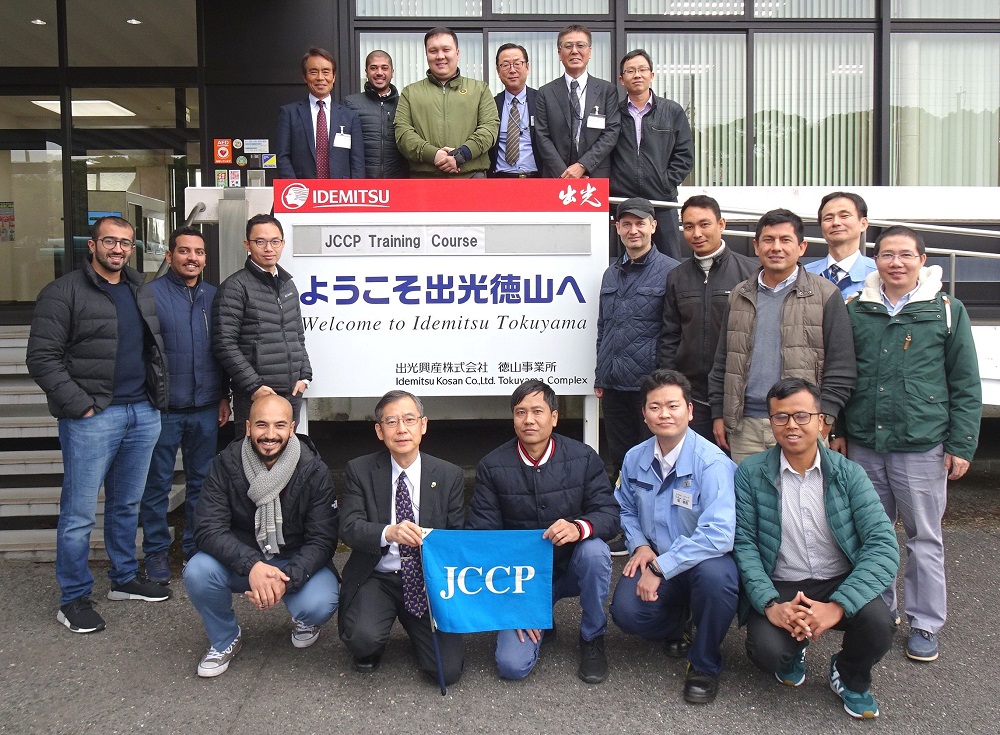
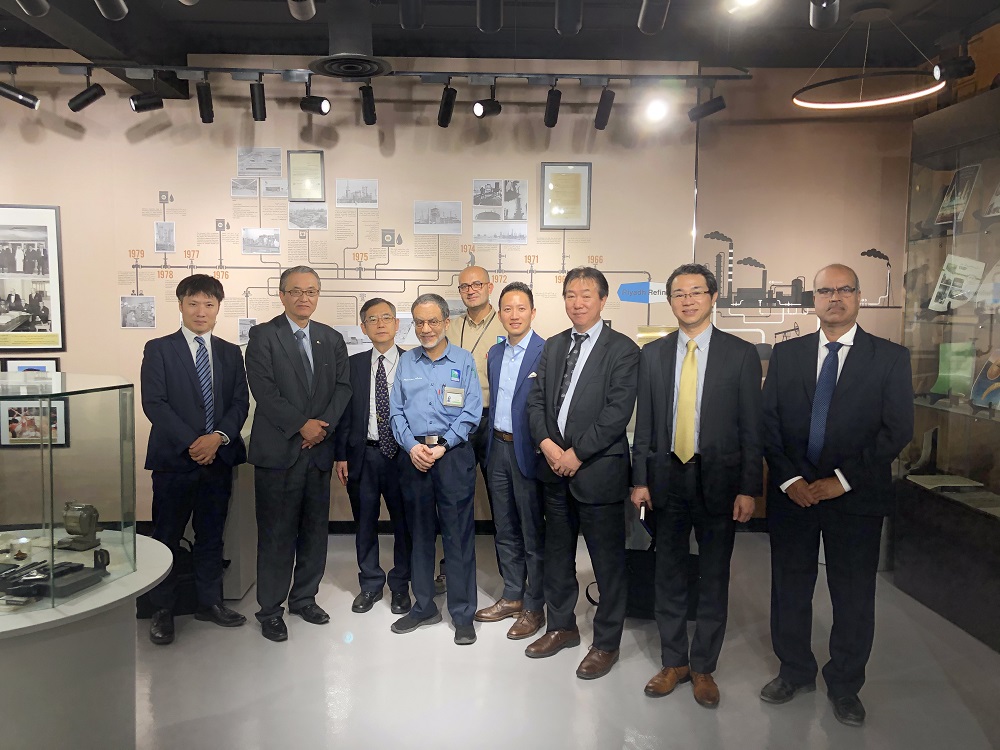
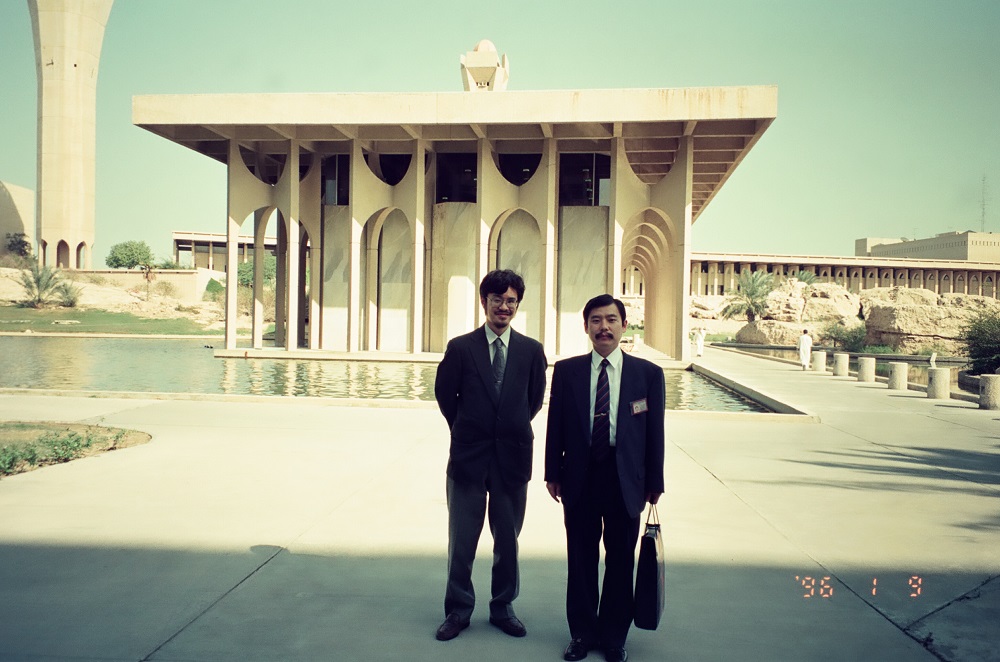
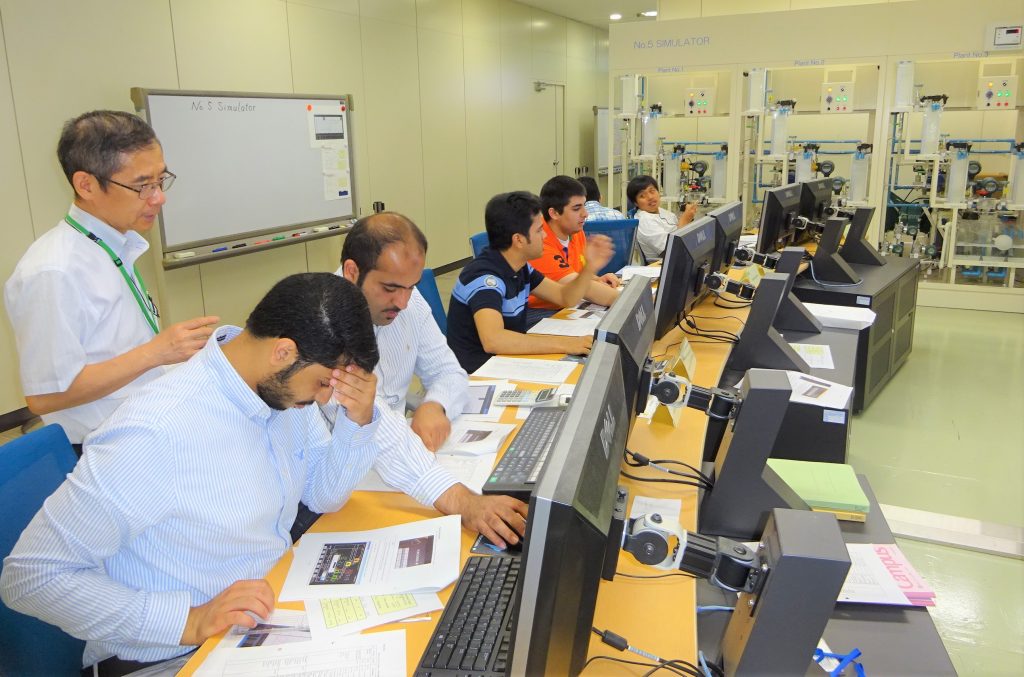




Alexander Woodman
Japan Cooperation Center Petroleum (JCCP) was founded in 1981 to promote friendly relations between Japan and oil-producing countries through human resources exchange and technical cooperation.
JCCP aims to be the world’s leading NPO in the downstream oil sector by providing exceptional and engaging knowledge based on Japanese business culture model, experience, and hospitality. JCCP activities include Human Resource Development (HRD) Programs in Japan and Overseas; Joint Technical Cooperation Programs; International Cooperation.
The team of JCCP believes in “respect the sound relationship with stakeholders in each society.”
Since its foundation, JCCP has established cordial collaboration with the governmental and private sectors of oil-producing countries, including the Kingdom of Saudi Arabia.
Since 1992, the Annual Saudi-Japan Symposium in Saudi Arabia has been held in collaboration with King Fahd University of Petroleum and Minerals. More than a thousand Saudi participants were sent to Japan to participate in a training program by JCCP.
I had a great opportunity to discuss the collaboration between Saudi Arabia and Japan with JCCP General Manager Dr. Eiji Iwamatsu.
AW: The year 2021 will mark the 40th anniversary of the Japan Petroleum Cooperation Center (JCCP). How would you evaluate these four decades of continuous development?
EI: JCCP was founded in 1981 to promote relations between Japan and oil and gas-producing countries through human exchange, and technical cooperation, thereby contributing to securing stable supplies of oil and gas. At JCCP, we promote human and technical cooperation in oil and natural gas downstream areas such as refining, distribution, and marketing by subsidizing of the Ministry of Economy, Trade, and Industry in Japan.
The company’s activities consist of Human Resources Development Program, Technical Cooperation Project, and International Cooperation.
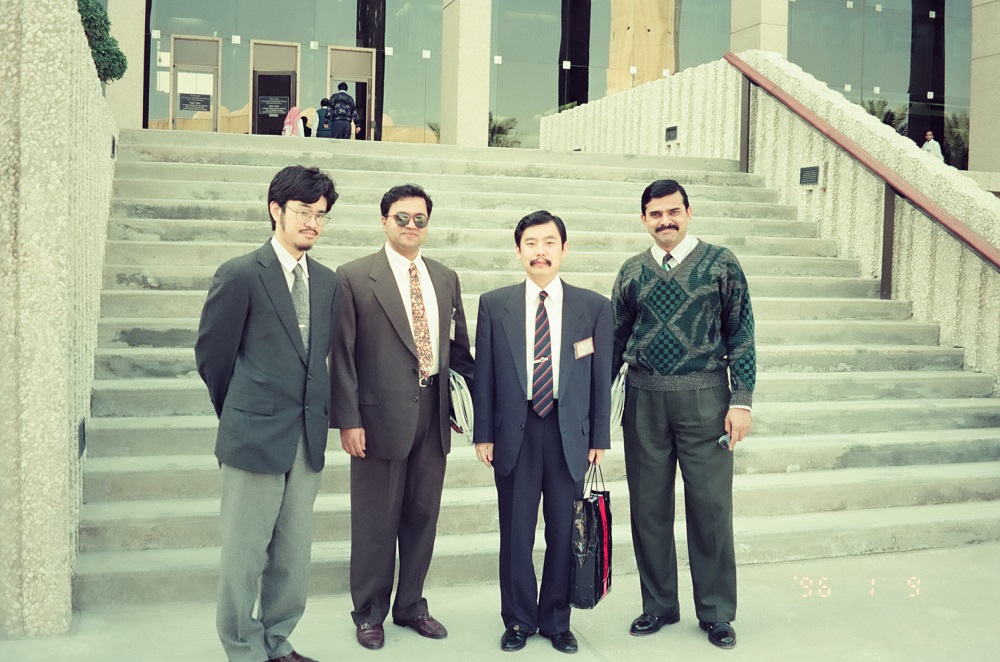
Over these four decades, the Human Resources Development Program included 25,553 participants, of which 1,187 were participants from Saudi Arabia, and 5,692 experts were sent to foreign countries to share their knowledge and experience, of these 274 were sent to Saudi Arabia.
Furthermore, JCCP in the Technical Cooperation Project frameworks implemented 255 projects with 51 projects developed and implemented in Saudi Arabia.
The International Cooperation sector of JCCP included 38 annual International Symposiums, as well as Specific Theme Joint Symposium with Oil- and Gas- Producing Countries and Network Meeting (Alumni Meeting). Remarkably, these symposiums hosted local professionals, as well as representatives, and stakeholders of Saudi Aramco and the Ministry of Energy.
Last, but not least, I would like to emphasize Specific Theme Joint Symposiums with Oil- and Gas- Producing Countries, organized in collaboration with Saudi Aramco. This symposium has been held annually since 2016, the next of which will be organized in October 2020 and entitled “Circular Carbon Economy.”
AW: JCCP aims to become the world’s foremost NPO in the downstream oil sector. What is exclusive about Japanese model of Management and Human Resource Development (HRD) that have attracted over 25,000 participants?
EI: I would define Japanese-style Management and Human Resource Development (HRD) methods with one word – teamwork. Historically, the Japanese are agricultural people. Since ancient times, they have been engaged in rice cultivation, which involves cooperation and collaboration with families and neighbors since rice planting and harvesting are tasks that one person cannot perform alone. This was a way, which contributed to the development of the culture known as “Harmony; the art of a collective society.”
With the development and progress of industrial society, this concept became more important, specifically in the business world. Moreover, this concept is a central philosophy in Japanese Management and Human Resource Development. We use this approach in our training not only from top to bottom but also sometimes from bottom to top to show teamwork. Furthermore, comes the “Ho-Ren-So” approach.
Japanese problem-solving system known as Ho (hokoku, or Report), Ren (renraku, or Contact) and So (sodan, or Consult). Interestingly enough, Ho-Ren-So means spinach, that we use in daily life as well. Nevertheless, one of the central axioms derived from our ancestors, and we continue to use in the business community, is “Kaizen” or constant improvement of one’s performance through teamwork and diligence to work better.
AW: JCCP promotes human and technical cooperation in refining, distribution, and marketing in oil and natural gas downstream. What is the role of marketing?
EI: The target participants for HRD training varies widely from managers/employees to engineers, researchers, and marketing staff. As part of training for marketing staff, we visit a retail store and ask retailers to talk about the actual situation of the Japanese retail market and the distributors, mainly on gasoline. This method helps to expand the practical knowledge and viewpoint of the participants. Similar to training for petroleum engineers, where an actual visit to an oil refinery site is part of the curriculum, in marketing training, an actual visit to a retail store is important to understand the actual situation in oil and natural gas downstream market.
AW: “Respect strong relationships with stakeholders in each society.” How does JCCP integrate its curriculum into different cultures and societies, specifically in Saudi Arabia?
EI: At JCCP, we have implemented a program considering and respecting different cultures and societies. For example, since Saudi Arabia is an Islamic country, we respect their religion and culture. Thus, the time and place of prayer are taken into account when training should occur in Japan. We also pay attention to food and drinks at the Welcome and Farewell Parties.
Moreover, in some cases, training participants visit Japanese companies while studying in Japan. As part of their respect for religious rituals, some companies have reconstructed the limb wash zones for Muslim prayers. We also take into account the rules of photographing women and respect the training participants’ intentions to provide individual photos to create memorable group photos when visiting companies.
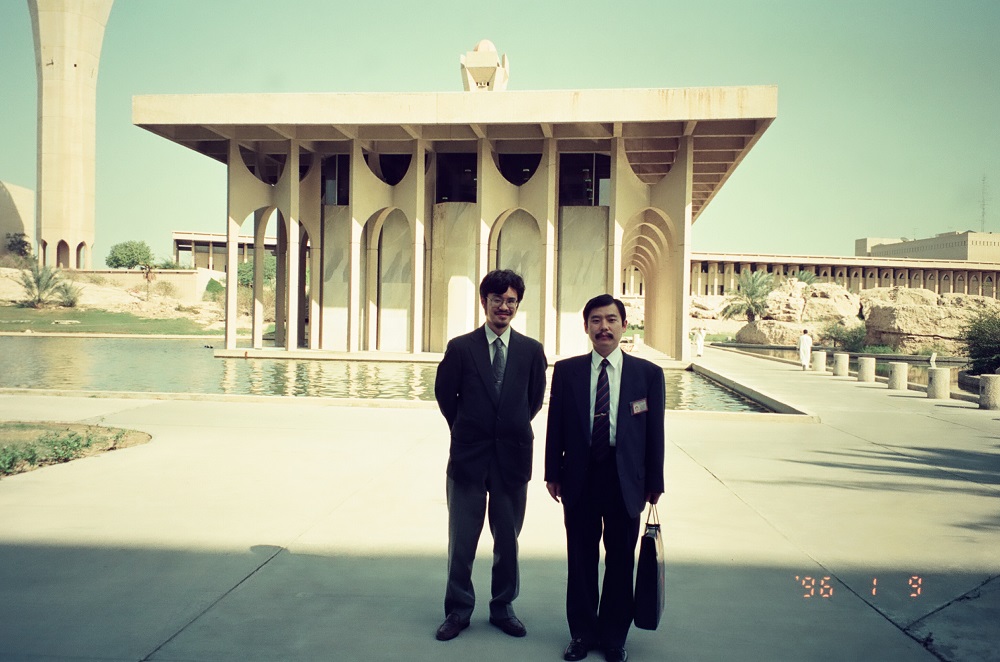
AW: As the General Manager of the JCCP Al-Khobar office, how would you define Saudi human resources’ potential? What is the difference between Saudi and Japan corporate culture?
EI: I would like to start my answer with a simple but very important example. Japan and Saudi Arabia have similar ideas in terms of respecting and valuing the relationship between family and relatives, as well as respecting the elderly. In Japan, three generations, from grandparents to grandchildren, live together as a family, which is considered a typical family example.
I know that in Saudi Arabia, families often meet and spend time together, especially during holidays such as dinner parties in Ramadan. In addition, the elders teach sermon in the mosques and within families, and the youth listens to them diligently.
Now, in answer to your question, as the General Manager of the JCCP office in Al-Khobar, I witness the same respect and dignity among the staff, especially when I meet with the Saudi Aramco staff, whom I consider as members of my family. I would like to keep in touch with each of them and continue cooperation and friendship in the future. To conclude, I believe that the most important values both in Saudi and Japanese societies is respect to others. This way can be structured a corporate culture of a successful company.
AW: Can you discuss the differences between an individual-oriented organization and a teamwork-oriented organization? How have you implemented the concept of teamwork in JCCP Al-Khobar office?
EI: I want to run the JCCP Al-Khobar office with a good and strong team. To this end, JCCP Al-Khobar is committed to promoting mutual understanding; we try to create an environment where every employee can freely express different opinions.
For example, on the first day of every week (Sunday), we hold a morning weekly meeting to discuss the schedule for the week and how to deal with some issues. Moreover, we try to build good relationships on a daily basis to everyone can actively participate in any discussion. One of the easiest but most effective ways to start the day is simply to say “Good morning” and have a short but pleasant conversation. For example, I am very interested in Saudi culture, and enjoy talking and learning about Saudi traditional courses and drinks, holidays like Ramadan, prayers, Arabic language, etc.
Interestingly, the other day, I first learned about “Setta min Shawal” for a Muslim, six-day fasting, taking place the next month after Ramadan’s end voluntarily. Through these simple but warm conversations, I try to maintain good human relations with my employees.
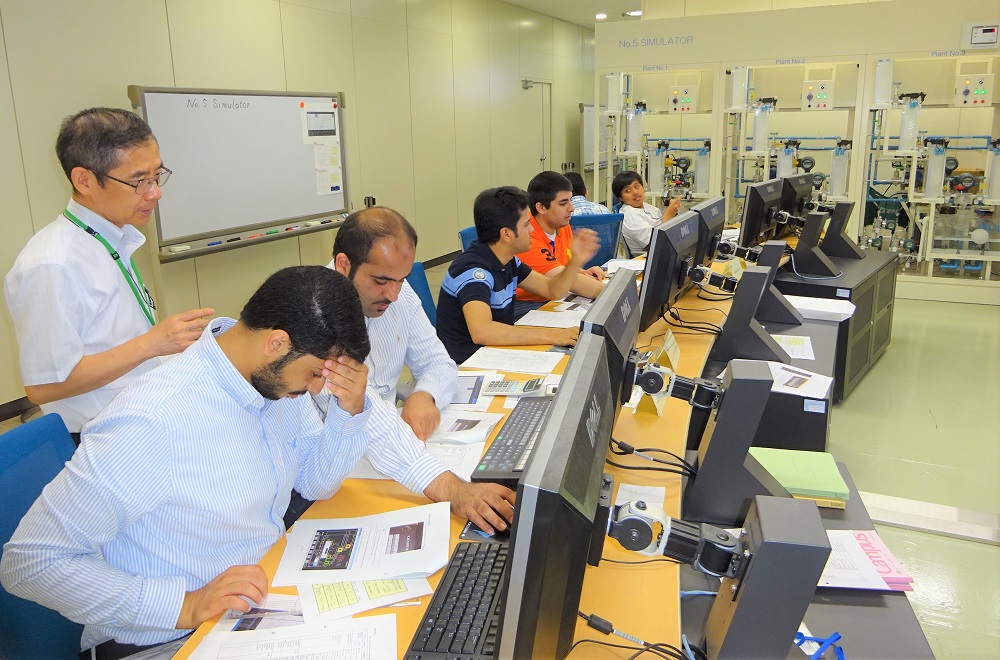
AW: What is the unique contribution of JCCP to the oil industry?
EI: Not going into much details, I would like to bring one of many practical examples on how JCCP contributes to oil industry. JCCP’s head office is equipped with a Distributed Control System (DCS) simulator that connect the miniature plant. DCS is the equipment that monitors and controls a plant located at existing refineries.
For example, it monitors and controls temperature, pressure, and liquid levels in various plants in a refinery. The miniature plant has three devices and each device has 4 water tanks. During training at JCCP, participants can monitor and control the miniature plant, gaining practical experience with DCS. This practice is especially important when it comes to the liquid level, as it cannot be seen from the outside on a real plant.
A tank is made of transparent material in miniature, and it is visible from the outside. In addition, water is used to keep it safe. Moreover, there is proportional-integral-derivative (PID) control, well known as one of the ways to control temperature, pressure, and liquid level in a real plant. Using this device, we offer hands-on training in tuning PID control parameters and building and recording a run screen or control logic.
This type of DCS simulator is very valuable as the number of similar installation examples is very few. It is housed in the newest technologically equipped control room with a large monitor and a modern working desk. This training on the simulator is constantly highly appreciated by participants in oil and gas-producing countries, starting with Saudi Arabia.
AW: Joint Technical Cooperation Program. When and how was the idea developed to conduct a basic survey, project formation study, and the implementation of cooperation projects in oil and gas-producing companies?
EI: The idea was born and realized when the top management of oil companies and JCCP CEO agreed on a framework for cooperation through exchanging letters and planning the program for the year. They further revise and formulate the program for next year. Thus, senior management meets regularly to review the cooperation program for the current year and agree on the cooperation program for the next year. It is a process of a joint technical cooperation program, where basic surveys, project formation studies and cooperation projects are conducted based on the needs of the oil- and gas-producing countries.
AW: Since 1992, the Annual Saudi-Japan Symposium in Saudi Arabia has been held with King Fahd University of Petroleum and Minerals. In your opinion, what is the significance of KFUPM concept specifically for oil-producing countries?
EI: To emphasize the role of KFUPM, I will bring some specific examples of JCCP-KFUPM collaboration. Starting from 1992 to 2014, the Annual Saudi-Japan Symposium has been held with KFUPM, and from 2015 Saudi Aramco joined this Symposium. I was residing in Al-Khobar and engaged in the Joint Research Project (Development of Hydrocracking Catalyst) between Petroleum Energy Center (PEC, at that time) and KFUPM, from 1995 to 1998. One thing that was highly appreciated by JCCP was the KFUPM team’s enthusiasm for developing new technology.
They welcomed us to introduce our latest experimental equipment. This result-oriented collaboration and teamwork with KFUPM allowed us to produce a variety of research outputs such as patents, scientific journal publications, and presentations, and seminars at international conferences, including the annual Saudi-Japanese Symposium. Afterward, since 2007, a long-term research exchange project has been implemented, with Japanese experts and university professors visiting KFUPM.
Last but not least, “HS-FCC Technology Development” is considered as one of the achievements of JCCP-KFUPM collaboration. This is the result of fundamental research started at KFUPM, which led to commercialization. I hope that KFUPM will continue to play a leading role in Saudi Arabia in the field of research.
AW: Speaking of education and youth, how would you describe your experience working with Saudi students and experienced professionals in the Kingdom?
EI: After joining JCCP in July 2014, I worked in Human Resources Development at Ikebukuro headquarters in Tokyo until December 2019. During these years, I have implemented a training program as a lecturer for a course in instrumentation and control.
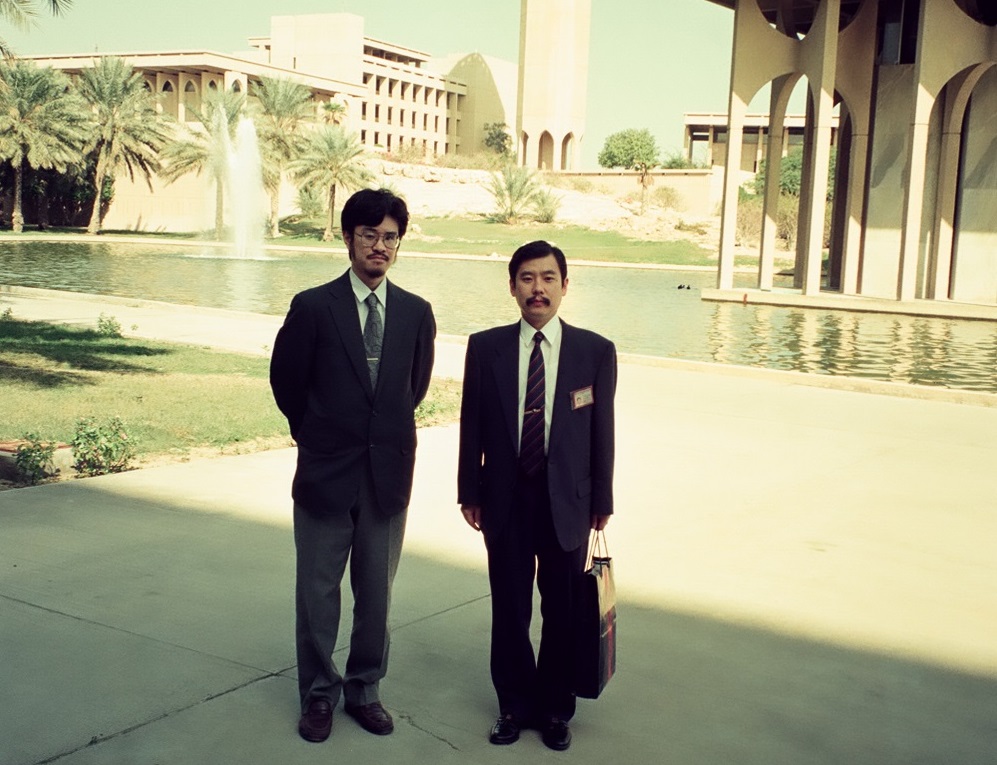
The Saudi participants were serious and had a leading edge from the oil-producing countries in the Middle East. They actively asked questions during the training and enhanced the atmosphere of the lectures. Remarkably, questions by Saudi participants led to an understanding of the program by all training participants.
On the other hand, participants from Saudi Arabia have partnered with JCCP staff to try and follow the schedule for those participants who tend to be late. Even when all the training participants were not gathered at the start of the lecture, the Saudi participant could say, “It’s time to start.” Another time they would say, “When the time is right, the training will begin.” In this way, the correct time was set, and the training participants gathered on time.
When I was the main coordinator of the “Advanced Process Control Course,” I had a request that Saudi participants would like to listen to the “Advanced Process Control” lectures from more Japanese companies on the last day of the training. As a result, I increased the number of companies’ lectures for the next year, and the training participants well-received this.
AW: “Strengthening Ties between Saudi Arabia and Japan in the Era of Vision 2030” was the keynote speech during the 38th JCCP International Symposium. In your opinion, what are the essential factors in strengthening Saudi-Japan relations?
EI: First and foremost, I think it is important to accept the partner country’s situation in a wide range of aspects, from the business environment to the culture. A prospective business partner should be interested in a partner country, like it, and build a good relationship of trust.
To this end, to fully utilize the partner country’s capabilities, it is important to have resident employees who can see and hear the actual progress of the partner-company, i.e., Saudi Aramco. They must study the living conditions, meet and mingle with the locals, learn about traditions and rituals, be it Ramadan or Hajj, drink Arabic coffee with dates.
This is why I think it is very important that the Japanese General Manager is housed in the JCCP Al-Khobar office in Saudi Arabia. I believe that a strong relationship between JCCP and Saudi Aramco, as well as Japan and Saudi Arabia, is based on the strong people-to-people connection and solid collaboration between the Japanese and Saudi Aramco leadership.
AW: One of the main objectives of Saudi Vision 2030 is an oil-diversified economy. Other than oil and energy in what areas should future investments be made?
EI: I think the carbon reduction, hydrogen utilization field will become important in the future. Saudi Aramco has already come up with the concept of “Circular Carbon Economy.” This is the theme of the co-sponsored symposium with Saudi Aramco, which is expected to take place in Japan, in October 2020. Although JCCP has already implemented a Technical Cooperation Project with Saudi Aramco in this field, we plan to expand the collaboration scale from this year.
AW: “Kaizen” or continuous improvement and perfection. What should be done for the next four decades to make JCCP the world’s foremost NPO in the downstream oil sector?
EI: As before, we will continue our activities that meet the needs of oil-producing countries and gas-producing countries, including Saudi Arabia, in Human Resource Development Program, Technical Cooperation Project, and International Cooperation.
As for “Kaizen” or continuous improvement and perfection, JCCP would like to accurately understand and perceive changes in requirements due to the COVID-19 pandemic and reflect them in Training Program and Technical Cooperation Project. For example, we would like web development at trainings and conferences to be one of the menus in the future.
Alexander Woodman is an author based in the Gulf. His research interest includes global health, international health policy development, transnational and transcultural health politics, ethics as well as diplomacy. alexwoodman.ucla@gmail.com Instagram @thelandofadat
Watch the full interview on SaudiReal: https://youtu.be/KxYbj7QgZ4s